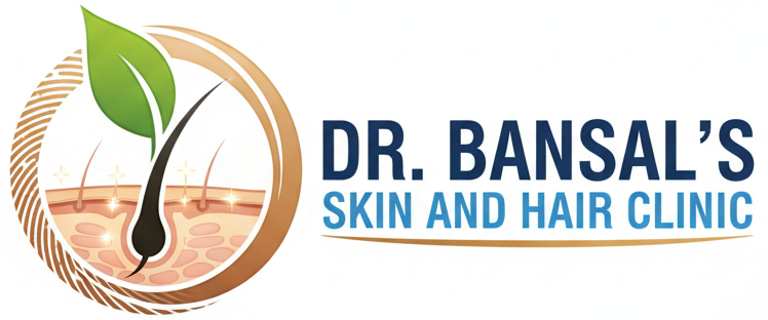Lichen Planus Treatment In Indore
Dr. Bansal's Skin Clinic, Indore
Lichen Planus is generally a chronic inflammatory dermatosis involving the skin, mucous membranes, nails, or genitals.
It results when the immune system mistakenly fights with the skin and mucous membranes, causing inflammation.
It is not contagious and affects people in any age group, though it is more common in middle-aged adults.
Symposium symptoms
Flat-topped, shiny, purplish bumps on the skin
Itching usually intense
White, lacy patches inside the mouth (oral lichen planus)
Nail changes - thinning, ridging, or loss of nails
Pain or burning sensation, especially in the mouth or genitals
Commonly appears on the wrists, ankles, lower back, and legs.
Treatment of Lichen Planus
There is no specific cure, but treatment reduces itching and inflammation and quickens healing.
1. Topical Treatments
Used for mild to moderate cases:
Topical corticosteroid creams or ointments - clobetasol or betamethasone: reduce redness, swelling, and itching.
Topical calcineurin inhibitors, such as tacrolimus and pimecrolimus, are used for sensitive areas of skin, like the face, mouth, or genitals.
Antihistamine creams or oral tablets. These will help relieve itching.
Topical retinoids, or vitamin A creams, help reduce lesions but are used cautiously.
2. Oral Medications
Used for moderate to severe or widespread cases:
Oral corticosteroids, such as prednisolone, are given for short-term control of inflammation.
Antihistamines to relieve itching.
Immunosuppressants, such as azathioprine, methotrexate, and cyclosporine: These are used when symptoms are severe or resistant to treatment.
Retinoids (acitretin) - may be helpful in chronic or thickened lichen planus.
3. Phototherapy (Light Therapy)
Control of inflammation and itching in skin lichen planus is possible with exposure to ultraviolet light, particularly UVB.
Usually given 2-3 times a week under medical supervision.
4. Oral (Mucosal) Lichen Planus Treatment
Topical corticosteroid gels or mouth rinses (e.g., triamcinolone, betamethasone mouth rinse).
Antifungal medication if secondary infection occurs.
Avoid spicy, acidic, or rough foods that might cause irritation in the mouth.
Good oral hygiene and regular dental check-ups are basic.
Prevention and Self-Care
Avoid scratching affected areas.
Avoid skin irritation with the use of mild soaps and moisturizers.
Avoid stress because it can exacerbate symptoms.
Avoid drugs that can cause lichen planus (such as some blood pressure or malaria medications — check with your doctor).
Avoid smoking and the use of alcohol, particularly if oral lesions are present.
⚠️ Important Note
It normally clears within 6 months to 2 years, with the exception of oral or genital forms. Regular follow-ups with the dermatologist are necessary for assessing improvements. In rare cases, oral lichen planus can make an individual more susceptible to mouth cancer and so needs to be long-term monitored.
Care
Dr. Shreyas Bansal has over 46 years of experience in promoting hair health and wellness. At Dr. Bansal’s Homeopathy Clinic, located at 2 Manish Bagh, Sapna Sangeeta Road, Indore, we provide personalised care to strengthen your hair, improve scalp health, and restore confidence naturally.
Health Hairs AT
Beauty
+91 9926120111
© 2025. All rights reserved.
